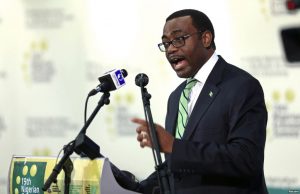|
|
||
| The African Development Bank (AfDB) has developed a new initiative called the Technologies for African Agricultural Transformation (TAAT) – a knowledge and innovation-based response to the recognized need of scaling up proven technologies across Africa.
Already, 25 African countries have written letters to the AfDB confirming their interest and readiness to participate in TAAT, and help transform their agriculture. It will support AfDB’s Feed Africa Strategy for the continent to eliminate the current massive importation of food and transform its economies by targeting agriculture as a major source of economic diversification and wealth, as well as a powerful engine for job creation. The initiative will implement 655 carefully considered actions that should result in almost 513 million tons of additional food production and lift nearly 250 million Africans out of poverty by 2025. TAAT will execute bold plans to contribute to a rapid agricultural transformation across Africa through raising agricultural productivity along eight Priority Intervention Areas (PIAs). The commodities value chains to benefit from this initiative are rice, cassava, pearl millet, sorghum, groundnut, cowpea, livestock, maize, soya bean, yam, cocoa, coffee, cashew, oil palm, horticulture, beans, wheat and fish. “TAAT was born out of this major consultation and brings together global players in agriculture, the Consultative Group on International Agricultural Research, the World Bank, the Food and Agriculture Organization of the United Nations, the International Fund for Agricultural Development, World Food Programme, Bill and Melinda Gates Foundation, Alliance for a Green Revolution in Africa, Rockefeller Foundation and national and regional agricultural research systems, ” said AfDB President, Akinwumi Adesina, at a TAAT side event at the 2017 World Food Prize in Des Moines, Iowa. “It’s the biggest consolidation of efforts to accelerate agriculture technology uptake in Africa. Technology will address the variability and the new pests and diseases that will surely arise with climate change,” he said. Adesina explained that TAAT would help break down decades of national boundary-focused seed release systems. Seed companies will have regional business investments, not just national ones, he said. “That will be revolutionary and will open up regional seed industries and markets.” TAAT, he explained, is to be implemented through a collectively agreed central delivery platform, coordinated by the International Institute for Tropical Agriculture, with national, regional and international agricultural research centres. “TAAT is a transformative and landmark partnership effort. The African Development Bank, World Bank, AGRA, Bill and Melinda Gates Foundation, and the Rockefeller Foundation intend to mobilize US $1 billion to help scale up technologies across Africa.” The Director, External Communications in the African Region of the World Bank Group, Haleh Bridi, described TAAT as a regional technology delivery infrastructure for agriculture, linking countries across agro-ecological zones. Bridi stressed that Africa can learn from Asia, which had made “amazing strides” in its agricultural revolution. “This is why we are involved in the TAAT programme,” she said to resounding applause. The Director for Agricultural Development at the Bill and Melinda Gates Foundation, Nick Austin, said, “Technology obviously evolves the journey to prosperity, the way economies transform and the way small-holder farmers engage.” “Locally, there are varieties. Locally, there are new technologies and solutions to small-holder farmers. We are in the position to play a key role in bringing the best technologies available and supporting new ways in delivering this to farmers. We are delighted and excited to be part of this initiative.” The President of Alliance for a Green Revolution in Africa (AGRA), Agnes Kalibata, stressed that African governments should drive technological development in agriculture. “What TAAT is going to have to do is work with the governments. We have lots of institutions that are ready for these technologies. We should work with governments to ensure that the technologies are not just ready to work, but become available to their country people. I think that ensuring that the farmers get all the technologies they need is going to be very important,” she said. The President of the Rockefeller Foundation, Raj Shah, highlighted the impact of technology on agricultural yields.
|


 Donors Grow Adesina’s Fund for Young African Agripreneurs to $600,000
Donors Grow Adesina’s Fund for Young African Agripreneurs to $600,000